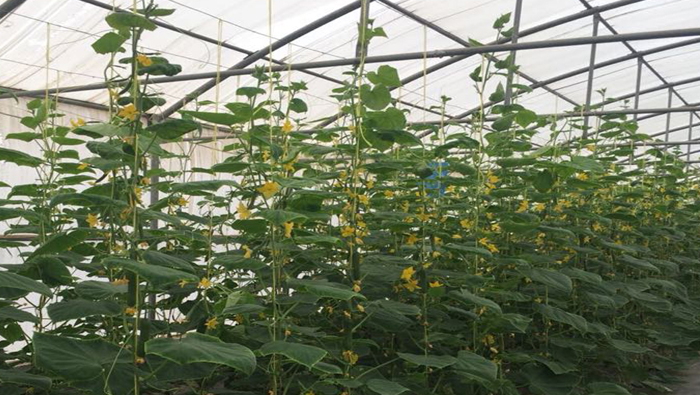
Muscat: Students at the Department of Crop Sciences, College of Agricultural and Marine Sciences at Sultan Qaboos University have successfully grown lettuce, strawberries and few other low stature vegetable crops using vertical farming methods.
Vertical farming is a way of growing food crops within skyscrapers, and vertical and inclined surfaces.
As part of its efforts to produce technologically advanced youth, the SQU students are exposed to the latest intriguing crop production technologies, particularly when the country is having limited precious water resources and soil and water salinity is on rise.
Dr. M. Mumtaz Khan, Associate Professor in the Department of Crop Sciences, said that vertical farming is a way of growing various food crops, largely horticultural crops within skyscrapers, abandoned warehouses, shipping containers, vertical and inclined surfaces.
The concept of vertical farming started to attract attention in the beginning of the twentieth century. The modern concept of vertical farming is achieved through controlled-environmental enclosed conditions. However, the prime concern is making sure that the production system is economically and environmentally sustainable.
According to Dr. Khan, the increase in global population and shrinking land mass around the planet has forced stakeholders to think quite seriously on the issue of increasing global food supply with less area available. The idea is produce higher yields on a per unit available area. Thus, vertical farming is the idea of exchanging land for value, “sky scrapers and space”.
Vertical farming requires specialized architecture such as construction of small to large scale structures equipped with controlled environment, hydroponic facilities and efficient recycling of unused nutrient rich water. Greenhouse gardening technology systems developed and paved the way forward for the modern concept of vertical farming. This type of farming is acclaimed by the communities and entrepreneurs throughout the developed and economically advanced countries.
Vertical farming offers benefits to protect crops from weather calamities. Crops being grown outdoors in traditional rural areas often suffers from perils like temperature, rainfall, hail, storms, floods, forest fires and severe drought etc. For example, India, Bangladesh, Thailand and others regions are frequently hit by torrential rains and floods causing huge losses to crop and economy. However, crops in vertical farming systems are protected against extreme climatic conditions. It also saves fossil fuels used in agricultural machinery for the cultural practices.
Thus, less fossil fuel burning reduces global warming due to lesser greenhouse gas emissions. In controlled environment, there are few insect pests and disease invasion and they are easy to control. It is useful in producing chemical free food products through minimizing the use of insecticides or fungicides etc. Extinction of useful insects or small animals due to gigantic chemical use in open field is lessened in protected agriculture.
In contemporary agriculture, extensive application of chemicals has caused serious consequences to soil, water and air contamination.
It has been reported that food produced with unwarranted chemicals are harmful to human health. In vertical farming food production is increased significantly without disturbing the ecological system. It can also generate employment opportunities in urban areas and can guarantee uninterrupted supply of food to urban societies.
Dr. Khan further said that there is criticism about such production systems. It needs more energy for heating/cooling and lighting the production system which will increase the cost of production and consequently also increase the product cost.
The system installation and sky rocketing prices of real estate in urban areas will make it a more expensive enterprise, which ultimately increases the cost of production. In vertical farming, a continuous supply of water is required.
However, Dr. Khan concluded that the future prospects of vertical farming look promising particularly in the wake of ever growing world population. It is estimated that the percentage of urban population will increase from 50.46% in 2010 to 68.70% in 2050. It is expected that world population will continue to increase. World population growth and the need for food security, a healthy ecology and climate, human health and nutrition and other similar factors makes the vertical farming technology a valuable future farming technology.